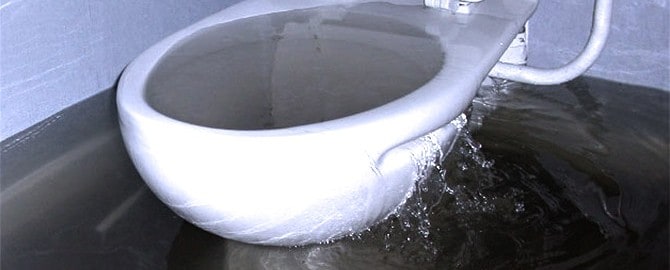
JERUSALEM - Israelis are not known for their fondness of the United Nations and its institutions, but a resolution passed Friday questioning Israel's continued [disputed presence] of the [biblical] city of Hebron and the damage it might be causing to holy sites there drew an angrier-than-usual response:
"Sorry ... I have a very urgent ... sorry, Mr. Chairman ... it's my plumber in my apartment in Paris. There is a huge problem in my toilet, and it's more important than the decision you just adopted, thank you," Carmel Shama-Hacohen, Israel's ambassador to the United Nations Education, Scientific and Cultural Organization, said sarcastically while addressing the forum's annual gathering.
The conference had just passed a resolution proposed by Lebanon, Kuwait and Tunisia to place Hebron, including the sacred site where Abraham, Isaac, Jacob and their wives are believed to be buried that has been revered by Jews, Christians and Muslims for thousands of years, on the World Heritage list of endangered sites.
Referred to by Jews as the Cave of the Patriarchs [ma'aras hamachpela] and by Muslims as the Ibrahimi Mosque, after the 14th-century house of prayer built there, the site has been a flashpoint of violence between Israelis and Palestinians for decades.
Tensions are constantly high in and around Hebron's old city, where a few hundred Jews live under heavy Israeli military protection surrounded by more than 200,000 Palestinians living within the wider city limits.
In January, the Palestinians - as part of a diplomatic drive to create an independent state free of Israeli occupation - submitted a request to UNESCO to inscribe Hebron onto the World Heritage list and later asked that it be recognized as an endangered site on their territory.
The Palestinians presented a dossier outlining the need for this status, with a focus on the city's historical character since 1250, the start of the Mamluk period of Islamic rule. Jews and Christians also were present in the city at that time, but their activities were limited.
The International Council on Monuments and Sites then attempted to evaluate the request and explore the site. A report it submitted to UNESCO said it could not fully justify listing Hebron as an endangered site but noted that the council had not completely carried out its mandate after failing to receive "the necessary permissions" from Israel to access Hebron.
Despite that, the resolution was adopted, with 10 countries in favor, three against and eight abstaining. This is the third Palestinian city listed as a World Heritage site. Bethlehem and the farming village of Battir also are listed.
"My response to the resolution was spontaneous," Shama-Hacohen told The Washington Post on Sunday. He said that his phone did not stop ringing during his speech at the forum and that he seized the moment to tell the chairman clearly and undiplomatically that he disapproved of the resolution.
Most Israelis see the ruling as negating the Jewish connection to Hebron.
"As an afterthought, I probably brought dishonor to my toilet by comparing it to this decision," Shama-Hacohen said.
Other Israeli leaders were quick to criticize the resolution, with Prime Minister Benjamin Netanyahu announcing that Israel would cut $1 million from its membership dues to UNESCO and transfer it to the establishment of a museum showcasing the heritage of the Jewish people in Hebron and the nearby settlement of Kiryat Arba.
Netanyahu spokesman David Keyes said Sunday that a final site for the museum had not been decided and that options were being explored.
Palestinian officials, however, hailed the resolution as a victory.
"Hebron is a city in the heart of the State of Palestine that hosts a site invaluable to world heritage and holy to billions of people around the world of the three monotheistic religions," read a statement from the Palestinian Foreign Ministry.
"Hebron's Old City and holy site is under threat due to the irresponsible, illegal, and highly damaging actions of Israel, the occupying power, which maintains a regime of separation and discrimination in the city based on ethnic background and religion," the statement said.
Previously:
• 07/07/17: It's official: Israelis love President Trump
• 05/26/17:> Trump's controversial visit to the Western Wall and why it was so important to Jews
• 05/17/17: When the Western Wall, Trump and Aerosmith share a headline
• 05/10/17: Did the 'Palestinian Nelson Mandela' just squander his, ahem, 'moral authority' for a handful of kosher cookies?
• 05/04/17: 'Cruel and indefensible': Human Rights Watch slams Hamas for holding two mentally ill Israelis
• 04/27/17: Evicted Israeli pioneers wait and wait for Netanyahu's promised new home
• 11/07/16: Israel's budding cyber warriors get Game of Thrones-themed training
• 10/21/16: After ordeal living under Islamic State, family returns home to Israel to face charges
• 09/12/16: French 'Burkini' debate boosts sales of Israeli company's modest swimwear
• 11/30/15: How EU's forcing the labeling of products from disputed Israeli territories may actually backfire
• 10/30/15: Security cameras at Temple Mount too controversial?
• 10/19/15: Her dad was stoned to death by Palestinians just weeks ago. Now, she's saved a suspected stabber's life


 Contact The Editor
Contact The Editor
 Articles By This Author
Articles By This Author